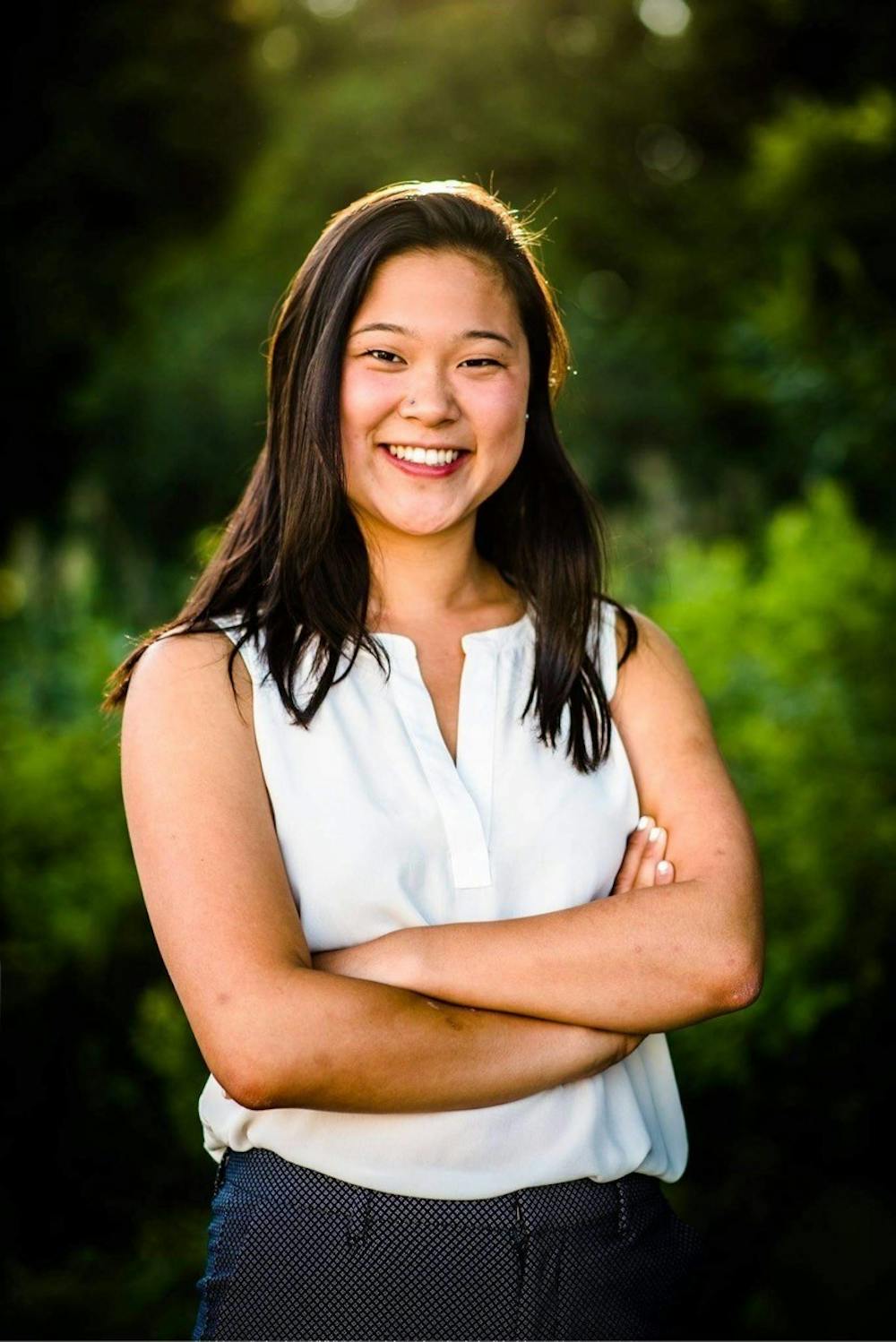American University alumna Catie Davis has long been interested in intersectional advocacy. With the creation of her new organization, the Intersectional Ally Network, she is merging her passions for LGBTQ+ and BIPOC advocacy for a greater cause.
As a women’s, gender, and sexuality studies major, the 2020 graduate used her experiences as an adopted queer Asian American woman to explore intersectionality — even completing her capstone on queer Chinese adoptees during her time at AU.
Davis, along with Camilla Duke, a recent grad of the University of St Andrews in Scotland, started IAN at the beginning of June, as a Facebook group, with plans to connect via video chat during quarantine.
“[At] First we thought it would just be this group of five gay friends talking about gay things and having a queer book club,” Davis said.
However, after they began telling friends outside of their core group about their plan, the dynamic of IAN changed drastically. Davis’ small Facebook group quickly grew to over 520 members, and she, and her co-founders, realized that they had the ability to create something bigger.
The group took on the role of an activist network — a place for not just book discussions, but resource sharing, fundraising and events like “Queer Happy Hour.” Instead of just focusing on LGBTQ+ voices, Davis decided to take on a global anti-racism approach.
“Not just racism in America — we really want to focus on politics globally,” Davis said. Part of this is due to its the large international following within the group — especially because the rest of the leadership team are also recent grads of the University of St Andrews.
Now, the group has a weekly book club with nearly 70 participants registered. Its first book was “Me and White Supremacy,” by Layla Saad. Even though a book club was IAN’s original purpose, Davis is hesitant to limit the group’s activism to just talking about books.
“A big critique of book clubs is you just sit around and talk with wine, but what we want to do is we want to donate, we want to fundraise, we want to get people interning and volunteering with existing organizations,” Davis said. “That’s not what’s productive, that’s not what’s going to move things forward in the world.”
Davis and her co-founders have also been able to utilize the Facebook group and IAN’s other social media accounts to fundraise.
“We’ve raised over $4,500 for bail funds across the country,” Davis said. Davis and her team are in contact with an employee of Microsoft, who said that the company plans to triple all donations gathered.
She also created an Instagram and Twitter page called “Which USWNT player are you?” to fundraise from a different angle. “I literally created a meme page: I’m obsessed with the U.S. Women’s National Team — this is so embarrassing, I’m literally in my 20’s and I created a meme page — but it works, people donate.”
While Facebook and Instagram garnered the most donations, Davis has also been experimenting with fundraising on TikTok.
“[I’m] using different platforms and digital organizing from my campaign experience and also just my quarantine boredom to just organize people.”
The group is also working to create a website and establish IAN as a 501(c)(4) nonprofit organization.
As the only person of color on the leadership team for IAN, Davis said she wants to work to get more people of color involved. In the future, Davis said she wants to use Instagram Live and create podcast episodes interviewing queer BIPOC artists and activists. Within seeking out BIPOC leadership, however, there are challenges to be mindful of, she said.
“We want more people of color to step up for leadership positions, but you can’t tokenize people, obviously,” Davis said. “I feel like that’s a thing that every organization has to figure out.”
Davis said that the most rewarding part of IAN has been seeing people come together from all around the world to discuss how they can be allies. She said she wants people to share their “vulnerabilities and fears” in order to help break “complacent habits.”
For those who want to get involved, Davis recommended following and liking the organization’s Facebook and Instagram pages. She also asked for anyone interested in joining the book club to email IAN.
Hopeful participants of IAN can look forward to what the group calls a “one-stop shop for all intersectional questions, ideas, and events” — a space where allies can learn how to be better allies without relying on the emotional labor of marginalized communities, the network said.
“I really think that the world is waking up right now,” Davis said. “There’s such a huge cultural shift in society which is really good for people — cis, white, straight people are now realizing all of these injustices and I think that’s a great thing because people are being active and they’re mobilizing.”





